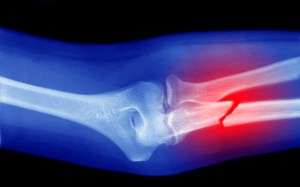The negotiations for a second stimulus check have now dragged on long enough that a second payment could look different based on the updates to your taxpayer status. The first economic impact payment back in April was based on American’s 2018 or 2019 federal income tax filings. If the U.S. Congress agrees on a second payment, it could draw that information from a different year.
Earlier this year, the unprecedented stimulus check program foisted a Herculean task on the Internal Revenue Service — to issue these payments to every eligible American using the most recent information from their taxes. This allowed the IRS to determine who qualified for the payments based on their most recent annual gross income (AGI) on file. Still, in the months since, millions of Americans have become unemployed, potentially leading to drastic changes in their income. Whether you are eligible and how much aid you are eligible for could have shifted in that time.
Videos by PopCulture.com
Based on negotiations so far, it sounds like the second stimulus check will be issued using similar criteria to the first one. A full $1,200 payment would be sent to anyone with an AGI of $75,000 or less on their most recent tax return. The stimulus check would decrease incrementally based on income from there, and for those with an AGI of $99,000 or more, there would be no check at all.
There is also the issue of dependent status — many young adults and elderly family members missed the first stimulus check because they were claimed as dependents, even if they were more or less financially independent. As a result, many of these people changed their dependent status on their 2019 filings in the hopes of claiming the second stimulus check. If your dependent status has changed, your eligibility might have changed as well.
In disbursing the first stimulus check, the IRS used the information for 2019 tax returns filed before April 15, 2020. For those filed after, they used the information for 2018 tax returns. According to a report by CNET, there is a chance that the agency will use these criteria on the second stimulus check as well, even if they have more recent information on hand.
If that’s the case, it will take a bit more work to claim the full amount you are entitled to for your stimulus check. You will be able to show the discrepancy on your 2020 tax return when you file in 2021, indicating what you are owed. The IRS has said it will post more details on this process as the 2020 tax season approaches. In the meantime, Congress may pass another stimulus package after the 2020 presidential election.









